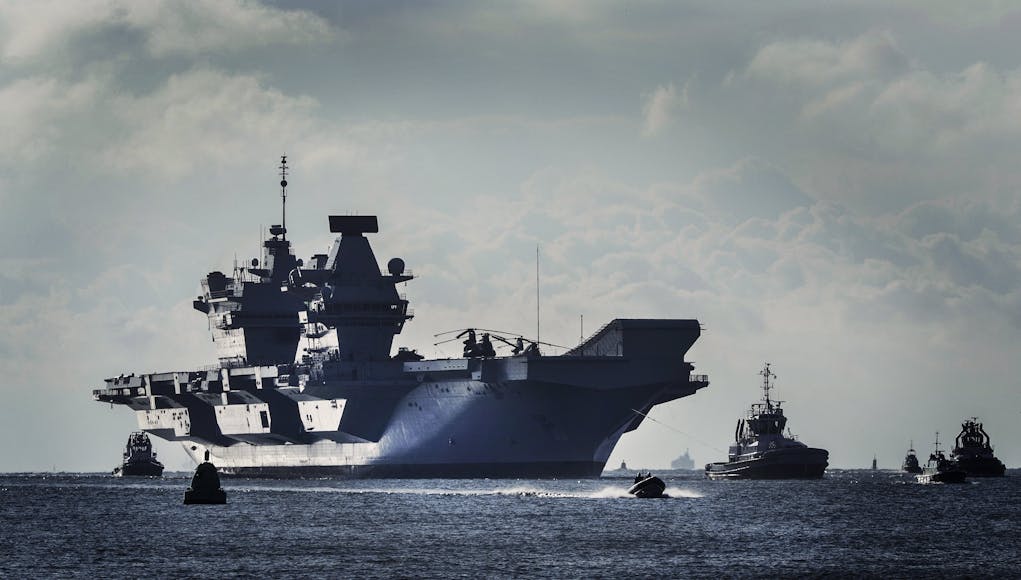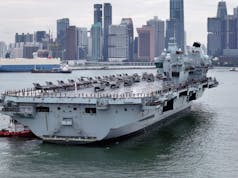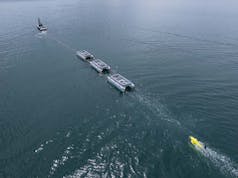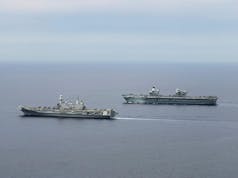QinetiQ has confirmed Queen Elizabeth Class Aircraft Carriers have been added to the Naval Combat Systems Integration Support Service (NCSISS) it provides in partnership for the Royal Navy.
Confirmation of the £9 million contract extension follows the company’s announcement earlier this year of a £23 million redevelopment project to create a new UK Centre of Excellence for Maritime Mission Systems near Portsmouth.
The new contract extension will see HMS Queen Elizabeth, and HMS Prince of Wales added to the advanced systems testing and evaluation programmes being delivered by the QinetiQ and its partners’ team of specialists based at Portsdown Technology Park.
“We are passionate about delivering world-class systems for the UK front line,” says Steve Fitz-Gerald, QinetiQ Managing Director of Maritime, Land and Weapons.
“The success of the NCSISS has enabled us and our partners to ensure the UK Royal Navy’s surface fleet is at peak operational performance at all times. Receiving confirmation of the contract extension which includes the largest warships in the Fleet demonstrates the unique capabilities, resources and expertise we have at Portsdown Technology Park. It is also very timely news as we progress with our plans to extend our capabilities and create a truly world class centre for innovation, integration and testing of Maritime Mission Systems.”
Jo Osburn, Head of Maritime Combat Systems at Defence Equipment and Support said:
“Extending the NCSISS arrangement to include the Queen Elizabeth Class Aircraft Carriers has provided a facility to test and assure new capabilities ahead of instillation into the platform. QinetiQ’s role in supporting the Combat System Enterprise through NCSISS will enable agile Operational Support to this new class of warship for her current equipment, as well as de-risking the addition of the new systems and equipment planned in the near to medium term”
The contract extension for the two Aircraft Carriers will cover a range of advanced communications systems for the planning and delivery of joint air and maritime activities and other critical operations. The work will also cover the Combat Management Systems and weapon control systems, as is already the case with other platforms in the Royal Navy’s surface Fleet.
Engineers from QinetiQ and its NCSISS partners will use shore based test environments at Portsdown to evaluate the complex mission systems of the two Carriers to minimise the amount of testing on the platforms themselves and to ‘maximise their operational availability and deployment’, say the company.














I’ve often wondered how up to date computers are on ships like this.
If they were installed as new on the ship just before launch when would they normally upgrade them? Obviously I’m not asking for specifics just rough estimates and what kind of computers do they have? Huge power desktops or low power laptops?
Given the large automation I’m thinking they have quite decent hardware on-board.
Yeah I’m pretty sure they will have easily upgradeable computer systems with good processors and fit out. considering the cost!
But there was that old myth stating the Carriers had windows XP operating systems onboard! Lol, that was a myth right?
Lots of computer systems run Windows XP.
Its stable reliable and is there to run behind the GUI.
Its not a problem as the computers are not on an external network.
Does that mean that the much heralded digital battlespace data communications links with helos & F35Bs are not a) installed, and/or b) enabled?